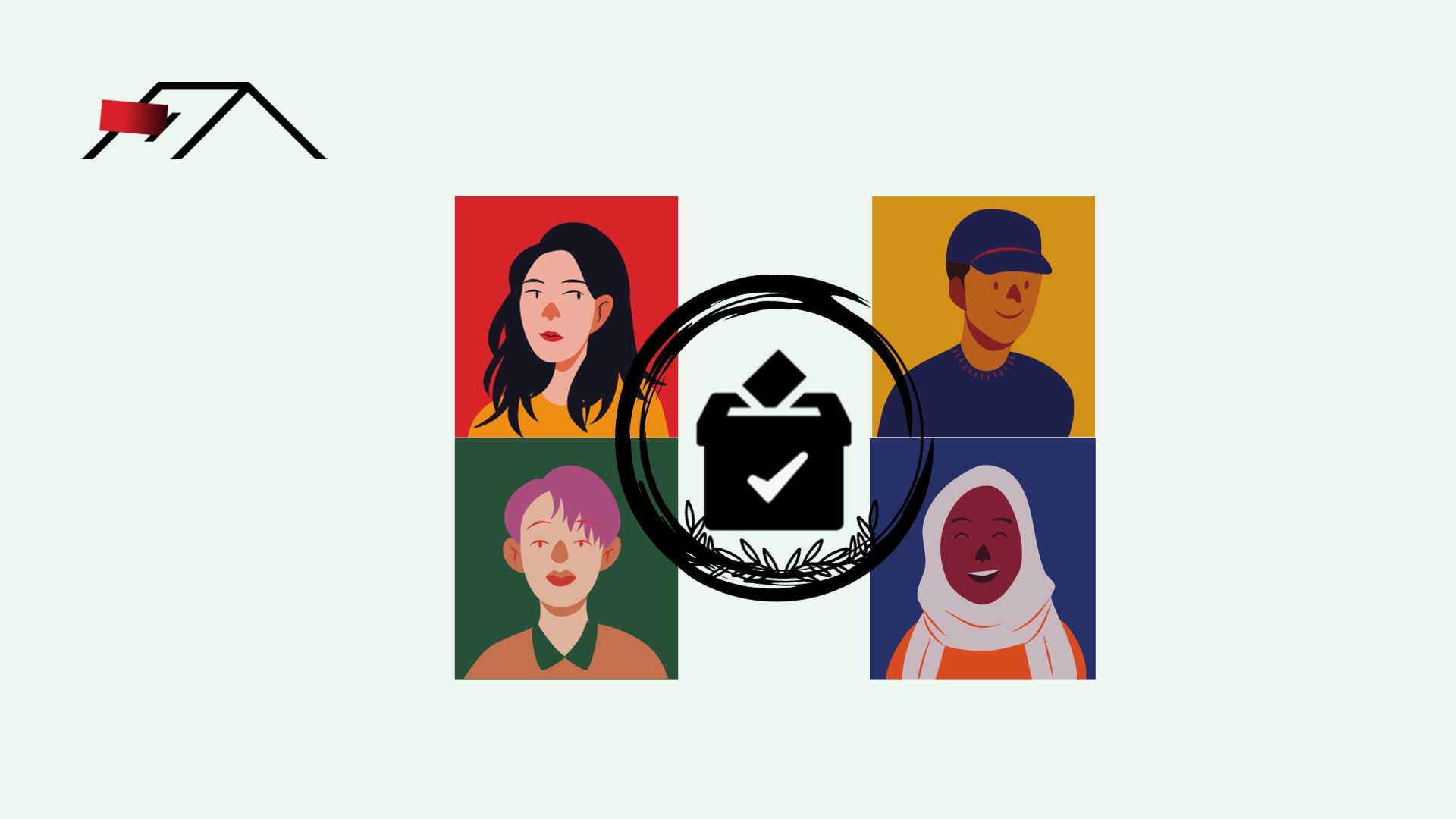Youth are often understood based on two contradictory perspectives in the context of elections. On one hand, they are glorified for their significant numbers and their role in electoral victories. On the other hand, they are regarded with skepticism as swing voters who are apolitical and susceptible to exploitation by political elites.
This article agrees with the former perspective but does not fully endorse the latter view.
Importance in Numbers
We all agree that youth play a significant role in electoral victories. Based on statistical data, out of 204,807,222 eligible voters, approximately 114 million, or about 55% of the total voters, are from Generation Z and Millennials. Apart from their large numbers, youth are believed to have spillover effects potential, a potential to influence the political agenda setting and preferences of other age groups, professions, and regions.
The importance of youth in electoral victories is evident from the adaptation of campaign styles by each presidential candidate pair. One form of this adaptation is the optimization of campaigns in digital spaces. Not only does this produce unique campaign content, but movements in digital areas are also designed to generate unique emotional attention, shaping the political preferences of internet users (especially on social media) within the logarithmic limitations of homogeneous content. The hope is that by attracting the attention of youth, the potential spillover effect of youth can be maximized by expanding the scope of campaign influence to other voter groups.
Campaigning in digital spaces is necessary, considering the youth’s dominance. Referring to statistical data from 2023, internet users in Indonesia had reached 212.9 million. With an internet penetration rate of 77.0 percent, there were 353.8 million active mobile connections (equivalent to 128 percent of the total population). These figures show 167 million social media users, equivalent to 60.4 percent of the total population. Based on this large number of social media users, 153.7 million social media users are dominated by youth aged 18 and above.
More specifically, of the 168,410,600 Facebook users in Indonesia, 63,500,000 are in the 25- —to 34-year-old age group. If we look at Instagram data, there are 89,666,400 users, which is 31.9% of the total population of Indonesia. From this figure, users aged 25 to 34 are the largest group, with 35,500,000 accounts.
Youth dominance is also present on other platforms, such as messaging apps or LinkedIn.
In short, the data above shows young people’s dominance in using digital spaces, especially social media, in Indonesia. Therefore, youth are critical both in terms of quantity as voters and as actors who expand the amplification of campaigns for electoral victories.
Guardians of Democracy Quality
The large number of users among young people and their potential to influence the preferences of other groups have demanded significant adaptation of campaign methods. Various forms of campaigns with optimized political gimmicks, open campaigns, deliberative debate spaces, and so on often become the “content” of massive digital campaigns to attract youth votes.
However, the question is, will youth always be the subject of these contents? Will youth’s potential to influence the preferences of other groups always be preceded by frames of interest implicitly implanted in them?
The answer to the above questions is no. Many young people remain passive political subjects whose potential is constantly exploited by political elites. This is evidenced by the many youth voting for presidential candidates due to non-substantive political gimmicks.
Thankfully, however, youth are increasingly active as rational and independent political actors. Instead of being apolitical and becoming swing voters, many youth groups are starting to form their political preferences more rationally. Moreover, many youth are utilizing their potential to influence the political choices of other groups more creatively and substantively.
The optimistic tone about the youth above does not arise without reason. This optimism is inseparable from various dialogical campaign forums I attended during the last campaign.
In open and democratic discussion forums, such as Desak Anies, Slepet Imin, Gelar Tikar Ganjar, and Tabrak Prof!, the participants are dominated by young people. They are not apolitical individuals and passive political subjects. Instead, they are youth groups actively seeking intersubjective truth, a truth used as a basis for determining rational and substantive political preferences. With the presence of youth in these forums, youth continue to transform into catalysts for various democratic discussions initiated by specific presidential candidate pairs in the context of this election.
Youths also utilize the potential for spillover effects in digital spaces. They create various social media accounts and several alternative campaign platforms. These accounts or platforms become alternative sources of information for other user groups to understand the presidential candidates.
Youth involvement in packaging campaigns has transformed formal politics into something more interesting without losing its core substance. This creative touch has transformed the rigid and boring political image into more inclusive and attractive. One successful example of this youth movement is Anies Bubble, as a movement worthy of inspiring other political movements.
Thus, the 2024 elections have shown that youth are essential in quantity and quality. There is a youth political movement as a rejection of unjustified justifications. Therefore, the decline in the quality of youth cannot be generalized.
Based on the dynamics of the 2024 elections, youth are transforming into active actors in substantively maintaining democracy, both in natural and digital spaces. This role is crucial when Indonesian democracy continues to degrade due to its increasingly hollow pillars. This role improves the quality of electoral democracy and substantive democracy in Indonesia. With this role, youth once again become the hope and alternative actors in offering, building, and nurturing Indonesian democracy to be better in the future. []
FAIZ KASYFILHAM
PolGov & Election Corner UGM
 Rumah Pemilu Indonesia Election Portal
Rumah Pemilu Indonesia Election Portal




